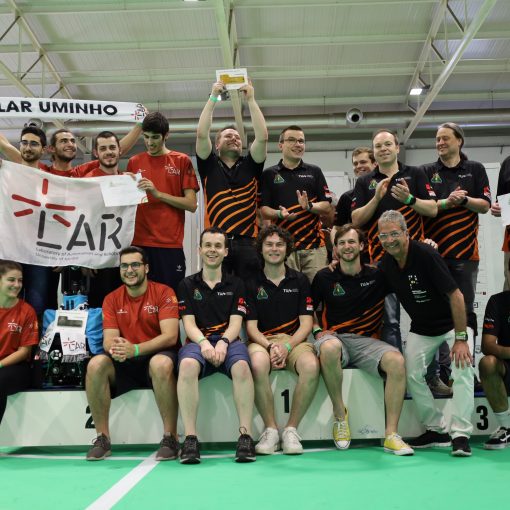
Joana Azeredo is the first Portuguese and the fourth in the world with this nomination and at an unusual stage of her career
Joana Azeredo, from the School of Engineering of the University of Minho, is expected to be the first Portuguese researcher with her nickname associated with a virus. Specifically, to the subfamily Azeredovirinae. This includes “good” viruses that, for example, attack bacteria pathogenic to humans.
It is only the fourth time that this world tribute has been paid to a woman and, curiously, it is not at the end of her career or posthumously, as is usually the case. Joana Azeredo’s nomination has now been announced by Andrew Kropinski, chairman of the International Committee on Virus Taxonomy’s Subcommittee on Bacterial and Archaean Virus. The approval, usually by consensus, should take place at the body’s next assembly in 2021.
“This is recognition of the work of our research team and UMinho itself in the discovery and characterization of viruses that infect bacteria. I still feel a little under the effect of surprise and satisfaction in obtaining this appointment and from now on, my team and I feel even more motivated for the research, which is a daily challenge that we accept with pleasure and enthusiasm,” says Joana Azeredo. The professor at EEUM and researcher at the Center for Biological Engineering (CEB) admits that having the appointment because of a virus “is ironic” at this time. “However, I am pleased that my family name is given to a subfamily of a ‘good’ virus at a time when mankind is struggling with a pandemic caused by a ‘bad’ virus, SARS-CoV-2,” she says.
Currently there are 43 subfamilies of bacterial viruses (also called bacteriophages or phages) and only 14 of them have been named in tribute to scientists. The demarcation criterion is to differentiate at least 5% of the DNA of the other species of the family. In the case of Azeredovirinae, it includes viruses that infect and kill bacteria of the genus Staphylococcus, which cause disease in humans. These viruses are of great therapeutic interest and can be used in the control of infectious diseases through so-called phage therapy.
Joana Azeredo’s team recently excelled in creating a “virus bank” to treat diseases caused by antibiotic-resistant bacteria, one of the world’s biggest health problems, whether for chronic diseases, hospital or respiratory, skin and nervous, digestive and urinary system infections. The initial formula is even simple – viruses kill bacteria and prevent disease – but getting there takes many years to isolate the viruses, modify their genome, characterize them and then prove that they are safe and effective. UMinho’s scientists are building the first synthetic phages and moving on to laboratory tests on animals. Phage therapy is already used in patients from several European countries and is seen as an alternative treatment, especially in very serious, incurable or life-threatening cases.
Joana Azeredo was born in the district of Porto in 1971 and lives in Braga. She graduated in Biological Engineering and has a PhD in Chemical and Biological Engineering from UMinho, where she is an associate professor with aggregation and coordinates the Science and Biofilm Engineering group of CEB. Focuses research on biotechnological solutions to control bacterial infections. It has made a strong contribution to phage therapy, collaborating with the Catholic University of Louvain (Belgium), the MIT – Massachusetts Institute of Technology (USA) and the universities of Groningen and Wageningen (Netherlands), among others. She co-founded the International Society of Viruses of Microbes and participates in the organization of international conferences and courses. She has coordinated two European and seven national research projects, co-founded the spin-off Inception and supervised 15 doctorates. She is the editor of the “Virology Journal” and co-author of four patents, three books and over 150 articles in international journals.



